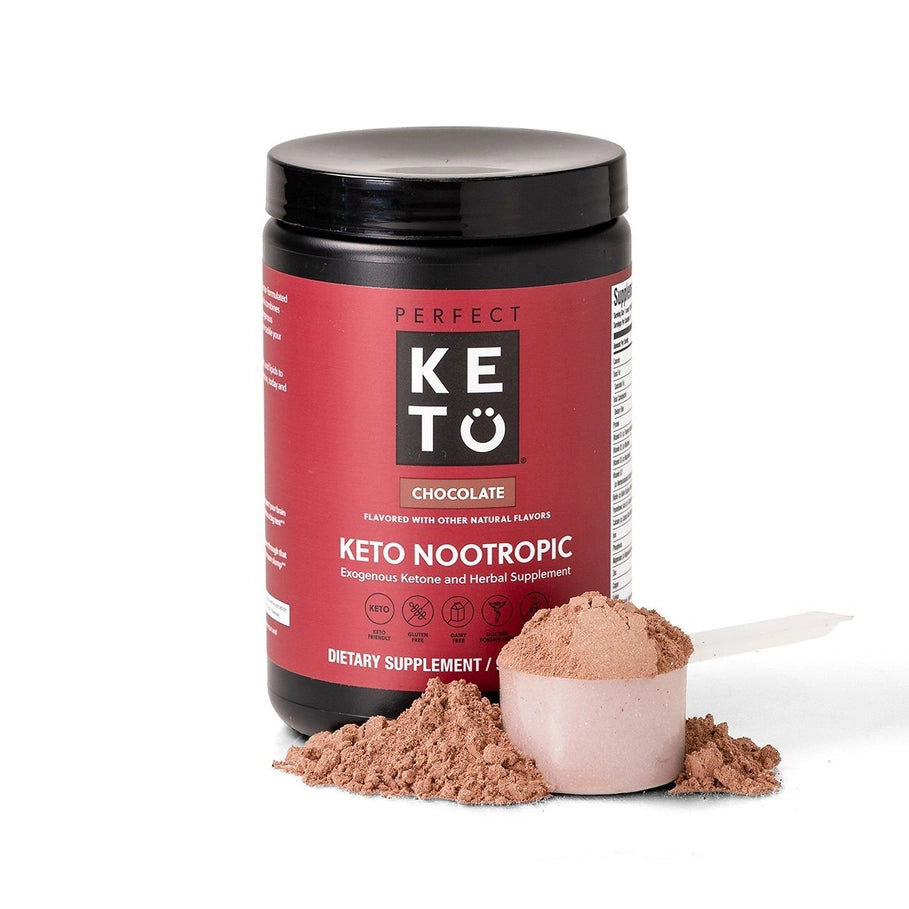
How to Follow Keto and Intermittent Fasting Together
Learn How to Follow Keto and Intermittent Fasting Together
Intermittent fasting and the keto diet are two popular nutrition trends. Both might seem restrictive, but with modifications, you can follow them together. Combining IF and the keto diet can be a beneficial approach to fat loss and maintenance. Intermittent fasting (IF) and the ketogenic diet offer many benefits. Each has been studied extensively for its role in metabolic health and as an aid in weight loss. Both have overlapping mechanisms that support fat burning and improved insulin sensitivity. If you’re interested in following both the keto diet and intermittent fasting, read on to find out how they work together…
What Is the Keto Diet?
The ketogenic diet, or keto diet for short, is a low-carb, high-fat diet. The goal is to put your body into a metabolic state called ketosis, where your body burns fat for fuel instead of carbohydrates. For beginners, a standard ketogenic diet is 75% fat, 20% protein, and 5% carbs. This means that you eat very few carbohydrates, moderate amounts of protein, and high amounts of fat. The keto diet works in two stages – fat-burning and maintenance. During the first stage, you follow a strict keto diet to enter ketosis and burn your fat stores. Then, once you’ve reached your goal, you can transition to a less strict version that allows you to maintain your weight loss. What's interesting is that both intermittent fasting and keto diet can have the same impact on the level of keton bodies in your system.
The Science of Intermittent Fasting
Intermittent fasting, or IF, is a diet plan that cycles between periods of fasting and non-fasting. There are several variations of IF, but most involve 16-hour fasts and 8-hour feeding windows. During your feeding window, you can eat whatever you want, unless you're on keto diet. During your fast, you consume nothing. Most people practice Intermittent Fasting to improve their health and longevity. IF has been studied for its links to lower levels of chronic disease risk and weight loss. From a metabolic perspective, IF can boost your fat-burning, improve insulin sensitivity, and keep you mentally sharp. You can choose to follow any type of IF. However, for best results, you should try the 16/8 IF method (16 hours of fasting and 8 hours of feeding). Let's now see how we can combine both Keto and Intermittent fasting together!
How to Incorporate IF and Keto Together
If you want to follow a keto-intermittent fasting diet, your first step is to determine your macronutrient goals. You can do this by using a calculator like this one.
In terms of macronutrients, an IF keto diet will look something like this:
During your fasting period:(Drink only Water or Coffe)
During your feeding period: (Follow your Keto diet)
If you decide to go keto, remember that your daily protein intake should be moderate. Excessive protein consumption is linked to kidney damage and other health issues. Your daily fat intake should be high, and your daily carb intake should be very low. In fact, your daily fat intake should be 75% of your overall calories and this is only 20 grams when it comes to your draily carb intake.
Benefits of a Keto-Intermittent Fasting Diet
The keto-intermittent fasting diet can benefit many people, especially those who are overweight. You can expect better body composition, improved energy levels, and improved mental performance when you follow this diet plan. Because you are in a state of ketosis during your fasting periods, you can expect high levels of fat burning. In ketosis, your body breaks down fat for energy instead of glucose from carbohydrates. And because keto and IF have been shown to improve insulin sensitivity, you can expect better blood sugar control and more stable energy levels.
Downsides of the Keto-Intermittent Fasting Diet
If you follow a strict keto-intermittent fasting diet, you can expect significant weight loss. However, you must also keep in mind that extreme diets can harm your health if followed too strictly. Intermittent fasting has been shown to increase oxidative stress and decrease the functioning of the immune system. For this reason, you must be careful not to push your fasting periods too far. The keto diet can be harmful to your health if you do not consume enough nutrients, especially if you are at risk for heart disease. You may want to speak with a medical professional before starting a keto diet if you have certain health conditions.

















